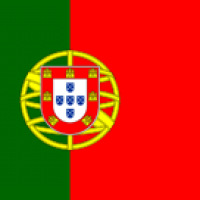Gouveia, J.P. and Palma, P. (2021) Infrastructure issues in Portugal. EP-pedia, ENGAGER COST Action.
Context on Infrastructure issues in Portugal
Almost all Portuguese households (i.e. 99.8%) have electricity, while 34% are connected to the natural gas pipelines and 60.8% use bottled liquified petroleum gas (INE, 2017). According to the latest national survey on energy consumption of the residential sector (INE and DGEG, 2011), heating final energy consumption in Portugal is provided by electricity (14%), biomass (68%) and heating diesel (14%). Natural gas, LPG, solar thermal and charcoal are also used as energy carriers (4%). Space cooling is provided only by electricity. According to Census data (INE, 2011), for the year of 2011, about 88% and 10% of households have space heating and space cooling equipment respectively. Only approximately 10% have any form of central heating. In the houses that have at least one heating system, the portable electric heater is the most common equipment used (61%). Fireplaces can be found in over 35% of Portuguese households, whilst only 7.3% have a heat pump for both space heating and cooling (INE and DGEG, 2011). Regarding space cooling, the cooling fan is the most popular option, accounting for 70% of the households with at least one cooling system, while air conditioning systems were found in 26% of these households (INE and DGEG, 2011). In the most recent Survey on Family Expenses 2015/2016 (INE, 2017), air conditioning systems were found in 15.7% of households, an increase compared to census 2011 data. Central heating was found in 16.2% of homes, also an increase compared to 2011.
On the supply side, as of 2019, EDP Distribuição S.A., the Portuguese Distribution System Operator, has been installing on average 10 thousand smart meters per week, for a total of 2.5 million meters installed (Observador, 2019). The goal is to have 100% of the consumers covered by 2025, which will cost around 230 million euros (DN, 2019). Currently, all high, medium and special low-voltage consumers and public lightning have smart meters but only a third of domestic consumers (approximately 6 million in total) have this device (DN, 2019). Around 70% of these smart meters are already communicating with the grid, in the “smart” form, no longer requiring the use of consumption estimates for consumer billing (DN, 2019). However, some technical issues still come up, such as problems in the communication between the meters and the distributor. In a partnership with the communications company NOS, EDP Distribuição launched a new smart meter that uses 4.5G Narrowband IoT, to resolve these communication issues. In another collaboration with NOS, the natural gas distribution network operator Galp Gás Natural Distribuição, S.A. is testing the implementation of NarrowBand-IoT technology natural gas smart meters in three Portuguese municipalities, having installed 100 meters so far (GALP, 2019). The equipment’s software system provides information to consumers on their consumption patterns, as well as enabling the remote activation of different services, like power and tariff changes. Furthermore, energy providers can use the data to analyse consumption habits and offer personalized services, as well as smart home solutions to control different appliances and further improve energy efficiency, possibly contributing for energy poverty vulnerability reduction.
DN. (2019). EDP Distribuição investe mais de 230 milhões até 2022 em contadores inteligentes e redes inteligentes [EDP Distribution invests more than 230 million euros in smart meters and smart grids] [Online]. Available at: https://www.dn.pt/edicao-do-dia/12-mai-2019/edp-distribuicao-investe-mais-230-milhoes-ate-2022-em-contadores-e-redes-inteligentes-10887715.html (Access: 02/05/2020).
EDP (2018). O Futuro é inteligente - Conheça os contadores inteligentes que estão a invadir o país. Available at: www.edp.pt
GALP. (2019). Galp Gás Natural e NOS testam contadores inteligentes [Galp Natural Gas and NOS test smart meters] [Online]. Available at: https://www.galp.com/corp/pt/media/comunicados-de-imprensa/comunicado/id/992/galp-gas-natural-e-nos-testam-contadores-inteligentes (Access: 02/05/2020).
INE (2017). Household Budget Survey 2015/2016. Statistics Portugal. Available at www.ine.pt

